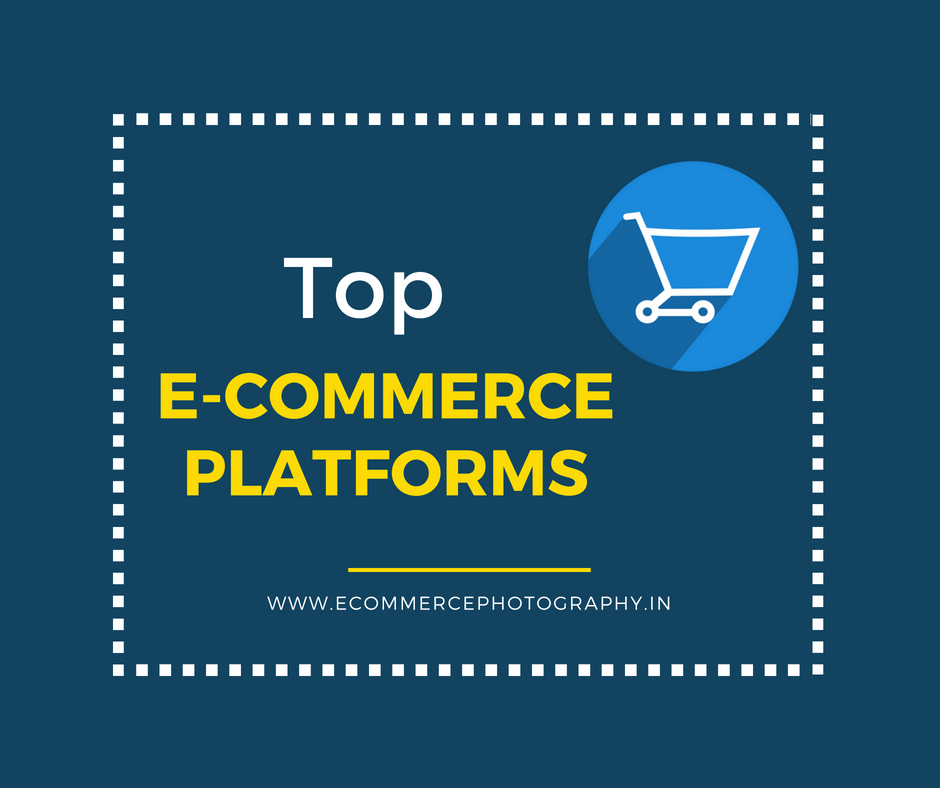The world is facing an internet revolution and the shopping experience is no exception to that. We are living in the age where e-commerce sites have taken over our product buying experience and are dominating it increasingly. There are a variety of platforms that will help you set up your business online. These are basically the e-commerce platforms.
So what are e-commerce platforms? E-commerce software enables a business to sell products and services online. Instead of the company having to purchase on-premise, standalone e-commerce software, they can opt for a platform that will enable them to do so.
E-commerce software provides a front end for the customers. On the other hand, they also deal with back-end functions such as accounting, order management, inventory management, and customer service.
They provide an infrastructure that unifies business applications and the data that feeds them, it is possible to create relevant, engaging and personalized online experiences.
Here is a list of top e-commerce platforms that will help your business.
1. Shopify
A Canadian-based e-commerce solution, Shopify has been helping online businesses across the globe with a sharp focus on the trending social commerce and mobile shopping. Shopify has always kept up with the pace of evolving e-commerce trends.
Shopify helps you:
Establish your brand online with a custom domain name and online store. With instant access to hundreds of the best-looking themes and complete control over the look and feel, you finally have a gorgeous store of your own that reflects the personality of your business. With Shopify’s e-commerce software, you get one integrated platform to run your business smoothly.
- Fully customize your website
- Add new sales channels in no time
- Manage and update unlimited products and inventory
- Fulfill orders in quick step
- Track the growth trends to analyse them
- A fully customizable online blog
If you are just a beginner and are in a place where the traditional platform can help you, you should totally opt for this. It will be fairly easy for you to begin your journey with this option.
2. Magento
Released in March 2008, Magento is an open source e-commerce website platform. The great part about this is that it is very reliable and scalable.
Here are some plus points on this platform:
- It is open source and available for free
- Has attractive customization options.
- User friendly.
- More than 9000 plugins and extensions that makes it highly scalable.
- Free extensions for social media.
- Extensive resource library for demos, new plugins, store management and various other features.
If your store has a huge amount of data that needs to managed then this is the right option for you. However if you are just starting off then its complex store setup, cost and highly technical management requirements are not for you.
3. YoKart
Generate online sales and traffic from desktops to hand-held devices. YoKart is usuallly used for the multivendor shopping cart systems. It is thus very famous among the multivendor eCommerce stores that give optimal experience on smartphones & tablets. This means no need to spend on a separate mobile eCommerce site!
The online store should be attractive enough for people to feel like shopping from there. That is why creative teams spend a great deal of time on crafting the look of the software.
YoKart has the following features:
- Hassle-free setup and easy management
- PayPal & other major payment gateways
- Completely customizable as per requirements
- Ready for mobile users as well
- One year free tech support
Resource



